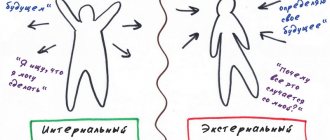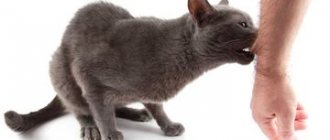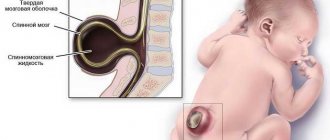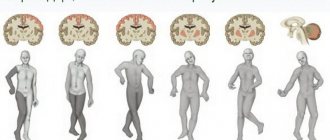Choleric
It has low sensitivity, high reactivity and activity. Due to the predominance of reactivity, he is characterized by impetuosity, short temper, and rapid mood swings. Due to some rigidity, he may have difficulty switching attention, but he is persistent in the pursuit of his goals and is very efficient. He is proactive and easily generates unusual ideas. Due to the combination of rigidity and excitability, one may not calculate the strength, “burn out” and become exhausted. More often an extrovert.
Sanguine
A sanguine person, like a choleric person, has high levels of reactivity and activity, but these characteristics are balanced, which ensures balance. A sanguine person has high plasticity, so he easily switches attention and quickly responds to changing circumstances. Quite sensitive, prone to vivid expression of feelings, but emotions are usually shallow, quickly appear and quickly disappear. A sanguine person concentrates well, but his productivity directly depends on his interest. He easily gets excited when doing something exciting, becomes indifferent when there is no interest, and, if possible, quickly changes the area of effort. In most cases, an extrovert.
Phlegmatic person
Characterized by high activity, low reactivity, excitability and sensitivity. Balanced, cool-headed. Due to high rigidity, he is prone to delayed emotional reactions (for example, he may begin to worry after the end of the conflict), has difficulty switching attention, does not like to change habits, and is quite slow to learn new skills. Slowness in phlegmatic people is combined with determination, high efficiency and productivity. Stubborn. Typically an introvert.
Melancholic
The high sensitivity of a melancholic person is complemented by low reactivity, which explains the tendency to an asthenic type of emotional response - tears, touchiness and vulnerability - with little regard for current external influences. It worries deeply and strongly. Compassionate. Often prefers work related to helping people, or monotonous activities that involve the absence of heavy loads. When achieving internal emotional balance it can be very productive. Learns quickly. Prone to timidity and lack of self-confidence. Mostly introverted.
Story
Looking for an answer to the question “How to determine a person’s temperament?” deals with such a science as psychology. At the origins of the doctrine of temperament is Hippocrates, who lived during the times of Ancient Greece. He believed that vital juices (blood, yellow and black bile, as well as phlegm) in certain proportions determine personal characteristics.
This idea was developed by the Roman Claudius Galen, who in his treatise gave a name to each of the 4 types of temperament. The word "choleric" is derived from the stem "bile" in Greek. The terms “sanguine”, “phlegmatic”, “melancholic” are translated as “blood”, “phlegm” and “black bile”, respectively.
Currently, the type of temperament is not usually identified with “vital juices”. Personality characteristics depend on the functioning of the nervous system. This theory was proposed by Ivan Petrovich Pavlov. Modern scientists have come to the conclusion that the type of temperament is inherited and is influenced by the social environment, upbringing, and the individual’s ability to self-control.
Currently, there are a large number of books on how to determine the type of temperament. In addition to literature, you can take tests on the Internet or sign up for a consultation with a professional. However, you should not expect the result to be one hundred percent. The fact is that having only one type of temperament is impossible. Each individual has characteristics of all four types, just some of them are more pronounced.
Features of determining temperament according to different theories
Many specialists in the study of human souls created their own system of distinguishing people according to their personal qualities. In some aspects these theories are similar, but in certain details they are sometimes radically different from each other.
Definition of temperament according to Hippocrates and Galen
Physicians of Antiquity long observed the fact that many people could be classified into four types. Hippocrates made some assumptions on this issue, and Galen improved them:
- Sangwa
. The doctors considered saturation of the body with blood as a good sign for people’s sociability. In their opinion, a person of this type is always active and has a cheerful disposition. - Phlegm
. The predominance of lymph in the form of sputum in the human body was considered a manifestation of calmness and slowness. In this case, Hippocrates and Galen based their conclusions on the fact that a person's blood does not boil, which usually leads to a surge of energy towards the people around him. - Hole
. Yellow bile has always and at all times been characterized as a poison that poisons the human body. In this case, the predominance of it in the blood characterized people as individuals who do not know how to control their emotions. - Melan hole
. The presence of black bile in a person’s body radically changed his behavior compared to a “chole” person. Hippocrates and Galen considered such people to be fearful individuals who often indulge in sad memories.
It was according to the theory of these two ancient doctors that the modern concept of dividing people into four categories according to temperament was developed.
Jung's definition of temperament
The famous psychotherapist and student of Freud decided to improve the system that was offered to humanity by the great figures of ancient times. In his interpretation, the types of temperament became more specific and began to look like this:
- Extrovert
. This type of personal characteristic of a person implies the focus of all his attention directly on objects. For such individuals, the priority is the opinion of the public, which determines their pattern of behavior. To some extent, this is an excellent way to adapt to society, but excessive manifestation of extraventiveness often leads to the subordination of personal interests in the name of others and nervous exhaustion. - Introvert
. A subjective starting point when planning your life is a distinctive feature of a person with a similar temperament. Such people give preference to personal experiences rather than the suffering of those closest to them. External reality is not an argument for introverts, because in all life situations they rely exclusively on their own opinion.
Jung developed a broader concept of determining a person's character based on two factors. However, it does not take into account the fact that people's behavior often depends on many nuances.
Designation of temperament according to Kant
The German philosopher also became interested in the theory developed by Hippocrates and Galen. As his contribution to this development, after a detailed study of the issue described, he proposed the following amendments:
- Das Leichtblutigen (cheerful disposition)
. Belief in a bright future, wit, simplicity and kindness are the positive qualities of a person with such a temperament. However, at the same time, Kant emphasized that merry people often easily make promises that they are then unable to keep. In addition, they do not possess such qualities as patience and endurance. - Das Schwerblutigen (dark disposition)
. Such people do not dream of new beginnings, because they are constantly subject to self-analysis in a rather negative way. Asking such a person for help can sometimes be very difficult, because he does not promise to take part in someone else's fate without good reasons for this. - Das Warmblutigen (hot temper)
. You should not test the patience of such a person, because he instantly lights up like a match. However, with a competent approach to the problem that has arisen on the part of the instigator of the conflict, he quickly cools down and may even apologize. However, Kant argues that it is this type of temperament that is most predisposed to the perception of flattering speeches and compliments. - Das Kaltbluti (cold-blooded man)
. Not a single muscle moves on the face of such a person, because she masterfully controls her emotions. However, people with a similar temperament are quite passive and do not want to challenge fate for their own realization.
Kant's development is interesting because it described in some detail the differences between people with a heterogeneous pattern of behavior. However, he did not take into account the fact that each person can combine several of the types he voiced.
Types of the nervous system according to I. P. Pavlov
The Russian scientist is known to a large group of people for his developments in the study of the reflex capabilities of dogs. At the same time, he devoted his time to the concept of differentiation of temperament, which is close to the theory of Hippocrates:
- Strong type (sanguine)
. According to the system of the scientist, the basis of the temperamental traits of such a person is the desire to resist life’s difficulties. Such people easily adapt to any changes, both physically and emotionally. - Inert type (phlegmatic)
. The low mobility of a person with a similar character can be considered a positive factor, because he will never enter into conflict. Even an experienced provocateur will not be able to evoke negative emotions in a phlegmatic person. - Unbalanced type (choleric)
. In this case, it is necessary to emphasize that such people are not able to control the balance of excitation and inhibition in their nervous system. Consequently, one cannot expect restraint and composure from such persons. - Weak type (melancholic)
. Weakness in external manifestations of life and excessive sensitivity to all external stimuli are the basis of the behavior of a person with such a character. Pavlov argues that strong negative emotions can completely destroy the integrity of a melancholic person’s vision of reality.
Calculation of temperament according to E. Kretschmer
This scientist’s theory is based on the fact that a person is controlled by hormones, adjusting the behavior pattern of each individual:
- Picnic type
. The definition of temperament in this case is based on the appearance of the person being analyzed. Such people have a stocky figure and excellent health. By nature, they are subject to a riot of passions and exceptional spontaneity. However, E. Kretschmer divides this subspecies into people with hyperactivity and calmer individuals. - Asthenic type
. With rather poorly developed muscles, such a person has a rather attractive appearance. In terms of his character, he resembles a contradictory nature, which can be accompanied by a rich collection of complexes. However, among such people there are often excellent friends who are ready to help their neighbor at any moment. - Athletic type
. It is such people who sometimes decide the destinies of entire nations. They do not focus on their own experiences, because they stubbornly pursue their goals in the most effective ways.
External signs allow you to better understand a person’s character and his view of the world. But do not forget how to determine temperament by other indicators, since it is rare to find a personality that ideally fits the description of a specific psychotype. Mostly all people combine various characteristics, and the main type is only dominant when making important decisions or communicating with others.
Classification of temperament according to A. E. Lichko
The famous psychiatrist studied character accentuation in humans for a long time. After some research, he proposed his differentiation of people by temperament:
- Hyperthymic type
. With increased mental activity and optimism in all factors, such individuals have every chance of a successful life in the future. They usually realize their strength in politics or in big business. - Cycloid type
. A person with such a behavior pattern agrees with everything that happens in his life. He resembles the well-known pony from the cartoon film, who performed the same actions every day. - Labile type
. Typically, this pattern of behavior is characteristic of teenagers who are looking for their place in this life. An adult with a labile type becomes some kind of experimenter, but within a rather limited framework. - Hysterical type
. Some people only want to express their opinion through hysterics. The process of hand-wringing is important to them, and not its result. This is how melancholic people behave, who have manifestations of choleric temperament.
Classification of temperament from astrologers
Many people, if they want to determine the type of their temperament, turn to all kinds of horoscopes. Ultimately, after studying such sources, they receive the following data:
- Aries
. Strong will, friendly character, internal energy are a distinctive character trait of people who were born under this zodiac sign. However, with all these advantages, Aries are always avid debaters on any issue. Such behavior can be characterized by a predisposition to such a type of temperament as sanguine people. - Calf
. Such people are rather silent, but have their own firm position in life. They speak slowly and measuredly, but at the same time they evaluate every word spoken. By their type they are closest to phlegmatic people. - Cancer
. Pictures from a kaleidoscope make up the vision of the world of a person who was born in the summer. At the same time, Cancers love to joke both at others and at themselves. Remaining excellent family men, they can get carried away, but they will never betray their relatives. This type of character is most suitable for sanguine people. - A lion
. Such people love to rule in any society. There are no authorities for them, because their personality is inviolable. At their core, they are closest to sanguine people, but if you awaken the beast in them, you will have to watch the riot of the choleric person. - Virgo
_ At first glance, this sign promises only peace and tranquility. However, in reality, these people often cannot be devoted to their significant other. They are thrifty and know how to make friends, which characterizes them as sanguine people. Although it is often among them that one comes across bright choleric people with hysterical habits. - Scales
. People born under this constellation are excellent listeners. They are energetic without ostentatious fussiness and are constantly in search of harmony. In all respects, their characteristics can be safely classified as sanguine. Melancholic people are also often found among those born in the second decade. - Scorpion
. People of this type should not be exposed to negative emotions. They have self-control, but not everyone dares to test their patience. All this indicates that when meeting a Scorpio, you can get acquainted with a choleric person with his insatiable thirst for justice. - Sagittarius
. Friendly and sociable people of this constellation can sometimes be quite tactless in their reasoning. At the same time, they are rarely traitors and slanderers, which characterizes them as sanguine people. However, among Sagittarius there are many phlegmatic and melancholic people, especially among those who were born almost at the intersection of dates with previous and subsequent astrological types. - Capricorn
. The so-called gray cardinals have great internal abilities. They usually act as advisers to their friends in their own analysis of problems, which in some way classifies them as melancholic. - Aquarius
. The most cheerful horoscope sign can be a friend to almost anyone. He is free as air from any circumstances, but if there are two patron planets in his star chart, he can be sanguine, melancholic and choleric in certain situations. - Fish
. Such a zodiac sign suggests regularity in actions and thinking. However, at the same time, Pisces will find a common language with any representative of the horoscope, which in some way equates them to phlegmatic people. - Twins
. Many people have heard about the hypocritical behavior of such persons. At the same time, Geminis, if they dislike routine work, are capable of becoming polyglots. In their temperament, they resemble sanguine people who are always ready to admit their mistakes. But since there are two personalities fighting within them, depending on the reactions acquired through life, they can also be creative melancholics or cholerics.
What kind of temperaments a person has - look at the video: If you want to reveal the secret of how to determine a person’s temperament, you should review each section in detail. After all, every person has his own unique personality characteristics. And in some cases it is worth taking a closer look at the developments of famous specialists in order to create a description of the psychotype as completely as possible.
Choleric
A person with a choleric type of temperament does not know how to control himself. Such people are often unrestrained and hot-tempered. Despite their unbridled temperament, they are easy-going and quickly calm down after the manifestation of violent emotions. They say about them: “It flared up like a match!” Indeed, these people get turned on immediately, but just as suddenly stop the outburst of emotions. Choleric people deeply experience both happy and sad moments. The reaction to current events is not long in coming; one might say, it is instantaneous.
All experiences are vivid, intense and fleeting. To understand whether you are choleric, observe your behavior. Exploring the depths of your personality will help you answer the question: “How to determine your temperament?” Cholerics are characterized by rapid changes of feelings and emotions. This can be seen in their facial expressions, facial expressions and gestures. Heat and passion, however, do not mean that the emotions of choleric people are superficial. All experiences come from the depths of the soul, it’s just that people with this type of temperament quickly switch from one event to another.
Which temperament type is better?
It doesn’t matter what psychotype you belong to, temperaments in their pure form are very rare. Although researchers have noted that the most prominent historical figures had a strong character and pronounced temperament. This is understandable, because only with perseverance and determination can you achieve your goal. Therefore, do not be shy about your outstanding temperamental characteristics.
The composition of society by temperament type in percentage looks like this:
- sanguine 49%;
- melancholic 29%;
- choleric people 14%;
- phlegmatic 9%.
The type of temperament does not affect a person’s abilities; one can be a talented melancholic, or one can be a reckless sanguine person. Depends on temperament:
- Speed and speed of information perception.
- Rhythm of life and activity.
- Intensity of mental reactions: willpower, emotionality.
- Attitude to the surrounding world. This is revealed in the openness that extroverts have. Introverts, on the contrary, tend to be reserved.
Age characteristics
Cholerics at any age are characterized by impatience and harshness in communication, energetic gestures and facial expressions, and a fast pace of work. In childhood, children with this type of temperament are the ringleaders in large companies; they easily encourage their peers to participate in various adventures. During puberty, teenagers become extremely active, they can get into fights, be rude to teachers and even disrupt classes! In adulthood, choleric people often notice a dislike for monotonous work. They take on a new task with enthusiasm, but they “cool down” very quickly, finish the activity they started hastily, and work carelessly.
Melancholic
To understand how to determine your temperament, you need to get acquainted with each of the four varieties. Melancholic people are characterized by unbalanced character. They deeply experience any events that happen to them, but do not give free rein to their emotions. Outwardly, they seem withdrawn and unemotional. Such people have inexpressive, monotonous, restrained facial expressions. They don't gesticulate too much.
The voice of melancholic people is quiet and inexpressive. These people are characterized by anxiety, vulnerability and sensitivity. They are wary of new activities, afraid of difficulties and avoid any unforeseen situations. Melancholic people prefer activities that can be performed without experiencing mental stress.
Mood, feelings and emotions are very monotonous and stable. At first glance, these people seem too sad and gloomy, withdrawn and uncommunicative. They are very vulnerable, which is why they react painfully to failures and criticism. Any difficulties in life cause them depression. Melancholic people are characterized by indecision and lack of strength; they are pessimistic about everything. They show disinterest in work. Melancholic people are treated as ephemeral creatures, unadapted to life and flying in the clouds.
Age characteristics
Children of a certain temperament type behave differently. Melancholic children are calm and withdrawn, they are easily influenced by others. In the team they are offended, teased and called names. They cannot resist injustice, they do not know how to defend their rights, which is why they often become the object of ridicule.
In adolescence, melancholic people have difficulty adapting to new groups. They can become a “punching bag” for stronger guys. Teenagers are timid, shy, sometimes tearful and indecisive. In adulthood, these character traits are preserved.
Sanguine
People with a sanguine type of temperament are balanced, quickly react to events that happen to them, but at the same time their emotions are quite moderate. Mental processes are weakly intense and are characterized by constant change. New emotional states appear quickly and are not characterized by depth.
How to determine your temperament? To do this you need to take care of yourself. For example, if you notice that you have expressive and rich facial expressions, active gestures, then most likely you are sanguine. Such people are very active and cheerful. They are impressionable and react to all external stimuli. Sanguine people practically do not delve into their experiences, as they are captivated by the world around them.
People with this type of temperament are quick-witted; their sharp mind allows them to easily solve all kinds of problems if they do not require much work and perseverance. Sanguine people have a positive attitude towards changing activities and quickly “light up” with new ideas. However, they leave what they started with the same speed when they find something more interesting to do. Very often they make decisions hastily.
Sanguine people are sociable, they make contact with any people. Relationships with them are very superficial, because owners of this type of temperament do not become attached to others and easily part with friends and acquaintances. Sorrows and joys, grievances and reconciliations are quickly forgotten by sanguine people. These people's facial expressions and gestures are very expressive, and their speech is fast.
What is this?
Let's start, perhaps, by trying to figure out what we have to deal with.
The thing is that the concept of “temperament” is often confused with the concept of “character”. But here it is important to understand that both the first and the second have their own characteristics. Temperament and character differ from each other, but this difference is not always visible. The first concept is innate qualities that influence the behavior of a person. It is thanks to them that we react differently to different incidents, actions and circumstances. Thus, we can say that people's temperaments are a general characteristic of personality. These include emotionality, speed of reaction to stimuli, and balance. In general, what can be considered features of the human nervous system. Temperament is a person’s reaction to what is happening.
Character is acquired qualities. Courage, humility, activity, determination and other aspects of a person’s personal activity are character. As a rule, this is a certain moral and psychological image of a person that appears during the development of personality.
If you accurately know how to determine temperament, then you will always be able to find an approach to certain people. In addition, sometimes thanks to this it is possible to determine at a young age which profession is more suitable for the child, where he will be successful. We can say that people's temperaments are what influence their lifestyle. But let's quickly get to know them.
Age characteristics
Sanguine people are able to work for a long time without feeling tired. They tend to choose a variety of activities and feel uncomfortable doing monotonous work. From childhood, sanguine people show a penchant for leadership. They are able to take responsibility. They are constantly looking for ways to be in the spotlight. Often people with a sanguine type of temperament make promises and do not keep them, admit their guilt and apologize, but continue to live as before.
Career ladder
Well, now we have learned what characteristics of human temperaments exist. As you can see, there are not so many of them. But each has its own characteristics that significantly distinguish them from each other. But there is another rather important point that should be taken into account - career. After all, a person’s temperamental traits, as a rule, greatly influence the choice of a future profession. Moreover, if you do everything correctly, then in the end success is guaranteed. Thus, it is worth looking at how a person’s temperament and abilities help determine their place on the “career ladder.”
Let's start, perhaps, with sanguine people. These, as already mentioned, are very active and energetic people. Moreover, they really love everything new and are the soul of the company. Such individuals are very well suited for positions as senior managers, advertising agents, trainers, promoters, designers, call center managers and salespeople. Where something new will always happen, sanguine people will strive to work and perform their duties very efficiently.
Leadership positions are best suited for a choleric person. True, those where everyone is approximately on the same level is just the ideal option. True, in “nature” this happens extremely rarely. Deans, directors, managers, mentors, some professional trainers, supervisors, officials, sometimes creative professions like singers and musicians, civil servants - all these are quite interesting and suitable places for choleric people.
As you can see, the characteristics of a person’s temperament always have to be taken into account. Especially when hiring a new employee. Just imagine that you decide to lead a choleric person... It will be a real “nuclear explosion”. Thus, we move on to selecting places for the remaining two character options. Namely – phlegmatic and melancholic.
To be honest, things are much simpler here. After all, the last two types are relatively calm individuals. This means that it will be much easier for them to find a place to work. Let's start, perhaps, with phlegmatic people.
To be honest, any profession is suitable for them. Such people do office work very well (secretary, manager, system administrator, etc.), and they are also able to sell goods well. That is, a salesperson in a store is also a good choice. Especially if a person does not need to be particularly resourceful in order to buy something from him. Any monotonous and monotonous work is the key to success for phlegmatic people.
But for melancholic people, things are now a little better with their choice of profession than they were 10-15 years ago. After all, our time is a period of technology and progress. Thus, home melancholic people now have the opportunity to work at home. Nannies and caregivers (especially for the elderly or teenagers), teachers (especially in private kindergartens), system administrators, web designers, website creators, programmers, freelancers, writers and sometimes journalists are all excellent choices for a melancholic person. If such a person has special skills (weaving, embroidery, and so on), then he can earn a living from this without leaving home. In addition, as already mentioned, melancholic people make excellent guardians of the hearth. They are able to work long and efficiently, but within the confines of their cozy “nest”.
Phlegmatic person
Personality characteristics are manifested not only in a person’s mental activity. By movements you can also determine the type of temperament of a person. Phlegmatic people, for example, are not very active. Their gestures are slow and sometimes sluggish. Increased emotional excitability is not typical for people with this type of temperament. Their feelings change infrequently and slowly. Phlegmatic people are very calm and calm, so it is difficult to anger them and force them into conflict with anyone. These people are very rarely seen agitated or disorganized.
Gestures and facial expressions are monotonous. Speech seems lifeless because it is not accompanied by body movements. Phlegmatic people think about their decisions first, but if they want to do something, they will confidently move towards their goal. They do not like change, so it is necessary to warn them about innovations in advance.
How to recognize?
Well, now let’s try to understand with you what features can be used to distinguish a phlegmatic person from any other type. We already know the characteristics of human temperaments, but how we can identify certain individuals is not yet entirely clear. Phlegmatic people are those whom we do not yet know how to recognize. But now we will learn this activity.
The thing is that the posture of such individuals is similar to sanguine. She is smooth, correct and beautiful. One might even say majestic. The gait is slow and lazy. They prefer to sit more. Moreover, they can “freeze” in one position for a very long time.
The facial expressions of phlegmatic people are monotonous, almost emotionless. The facial expression seems to say: “And everything is parallel to me.” In other words, complete indifference is what distinguishes this type of temperament. You are unlikely to be able to read anything on the face of such a person.
Regarding speech, one can only say that it is also just as indifferent, calm, lazy, and measured. Plus, phlegmatic people are not very talkative. They prefer to remain silent rather than say something. Gesticulation is as measured as facial expressions.
Phlegmatic people cannot be called sociable. Usually this is a typical “office plankton” that slowly, but efficiently and diligently does its job. They try not to make many friends, since they are not very good at communication. Before answering any question, such a person, as a rule, will think and weigh everything for a long time.
G. Eysenck's EPI method
If you are interested in how to determine a person’s temperament type, then most likely you are familiar with G. Eysenck’s method. This test consists of 2 options with 57 questions each. To pass this test, you need to answer yes or no questions, and you need to be completely honest with yourself. There can be no wrong answers, because they are absolutely individual.
Questions are aimed at determining behavior and reactions to various situations. The results are revealed by several indicators, including stability and instability of the reaction (neuroticism), introversion and extraversion.
Psychological personality types: extrovert and introvert – connection with temperament
Extra- and introversion, like the type of temperament, is not an absolute indicator, but a set of individual traits and a tendency to a certain type of reaction. Extroverts are predominantly directed outward, replenishing energy through interaction with the outside world, introverts are depleted in the outside world and are replenished in contact with themselves. This characteristic is expressed to varying degrees in different people. In addition, there are ambiverts - people who, depending on the circumstances, behave either as extroverts or as introverts.
According to Eysenck, extroversion and introversion directly depend on people's temperaments. Choleric and sanguine people are extroverts, melancholic and phlegmatic people are introverts. However, since each person to some extent contains traits of all types, in some cases there are phlegmatic and melancholic people with pronounced extroversion, sanguine and choleric people with predominant introversion. There are also “masks” due to upbringing, because of which extroverts can behave like introverts and vice versa. “Masks” do not change natural agility, but they limit its manifestations and, as a result, usually make a person less productive.
Test by A. Belov
One of the most popular tests for determining temperament is A. Belov’s test. It consists of 40 questions divided into 2 blocks. The structure of the test is similar to G. Isaac’s method. The subject is presented with a series of statements to which he must answer “Yes” or “No.” The results show the percentage of temperament types. Two of them are usually dominant.
Decoding answers to the Eysenck test
Now you can start analyzing the answers. All 57 questions are divided into 3 groups, each of them corresponds to certain personality qualities. If your answer matches the one below, you can give yourself 1 point. And then count the number of points. Record the number of points in each group.
Truthfulness response group
The answer “yes” was expected to questions: 6, 24, 36. A negative answer to questions: 12, 18, 30, 42, 48, 54. By carrying out a simple calculation, we can check how honest we were when answering the questions. If you get a total of more than 5 points, your answers are false. Most likely, when answering, you were guided by the desire to please yourself and others. If the test shows that the answers are untruthful, the analysis need not be continued.
Emotional Stability Response Group
You can score up to 24 points in this section. Positive answer to questions 2, 4, 7, 9, 11, 14, 16, 19, 21, 23, 26, 28, 31, 33, 35, 38, 40, 43, 45, 47, 50, 52, 55, 57. The fewer points you score, the more stable your psyche is. And vice versa, the more points you count, the more sensitive and suspicious person you are.
A group of answers to determine the attitude towards the outside world
The lower your score in this group, the more introverted you are (an introvert), and the higher your score, the more likely you are to be an extrovert. The answer is “yes” to questions: 1, 3, 8, 10, 13, 17, 22, 25, 27, 37, 39, 44, 46, 49, 53, 56. A negative answer to questions: 5, 15, 20, 29, 32, 34, 41, 51.
Now, on the photo below, mark the points of the points you received. The horizontal line shows the scores from the introvert-extrovert group, and the vertical line shows the value of responses to emotional stability.
The point you find is a reflection of your temperament. The farther it is from the intersection of the axes, the more clearly your temperament is expressed. The proximity of the point to one of the axes indicates how mixed your temperament type is.
Having determined your psychotype, you can reasonably avoid uncomfortable situations and choose the right type of activity. Knowing your inner strengths will help you achieve your goals and develop your personal strengths.
How to determine a child's temperament?
You don't need to take many tests to figure out what type of temperament your child has. It is enough to observe a boy or girl and analyze the children’s attitude towards daily activities.
- Cholerics, as a rule, have increased excitability. In the game, they strive for leadership and are distinguished by mobility and activity. Very quickly they get bored with monotonous activities. Such children prefer football, basketball and dancing. They may unknowingly offend people around them, so it is necessary to be patient in raising them.
- Sanguine people are very friendly and active, they easily switch to other activities and quickly forget about grievances. These children love team games such as football and volleyball. Guys can be absent-minded and frivolous, but with proper upbringing you can get rid of these character traits.
- Phlegmatic people are silent and slow. These children want to have their own space. They do not show interest in various games because they like to sleep and are not very imaginative. They enjoy drawing, music and embroidery.
- Determine your child's temperament type by describing his personality traits before he goes to school, otherwise difficulties may arise. For example, phlegmatic people get tired quickly; they switch from one type of activity to another for a long time. These children are very touchy and a little cowardly, so at first it may be difficult for them to get used to the new team. Quiet activities such as reading and drawing are best for them.
Eysenck test for temperament type
Most often, we cannot decide on our own what type of temperament we belong to. Thinking about the abilities of our Self, we are disingenuous, wishful thinking. Psychologists have developed special tests to determine the type of temperament, where by answering questions you can understand yourself. The proposed test was developed by the English psychologist Hans Eysenck, consists of 57 questions and is one of the most popular. There are 2 answers to every question: “yes” and “no”. Try to answer as truthfully as possible.
- Are you yearning for new, vibrant experiences?
- Do you need the understanding and sympathy of your friends?
- Are you a harmless person?
- Is it easy for you to give up on your plans?
- Do you need time to think before acting?
- Will you keep this promise to the detriment of your interests?
- Are you prone to mood swings?
- Should you think carefully before you say or do something?
- Do you feel unhappy, even for no reason?
- Is it true that you are ready to do almost anything to win a bet?
- Are you embarrassed to approach a stranger?
- Are you capable of getting so angry that you lose your temper?
- Can you commit a rash act, succumbing to emotions?
- Are you tormented by thoughts that you said or did something in vain?
- Do you think it's better to spend time with a book than chatting with people?
- Are you easy to get hooked?
- Do you love company?
- Do you have thoughts that you are ashamed to tell people about?
- Do you have energy highs when you're ready to move mountains, and lows when you feel sluggish?
- Are you sure that it is better to have few friends, but trusted ones?
- Are you a dreamer?
- Do you react by screaming to screaming?
- Do you often feel guilty?
- Do you only have positive habits?
- Do you know how to relax and “have a blast” in a fun company?
- Are your nerves often stressed to the max?
- Are you considered a cheerful, energetic person?
- After completing something, do you think about what you could have done better?
- Are you comfortable with large crowds of people?
- Do you happen to share rumors?
- Can annoying thoughts disturb your sleep?
- To find out any question, do you turn to friends or read in a book?
- Do you experience heart palpitations?
- Do you strive to do work that requires tension?
- Are you experiencing tremors?
- If you know that your words will remain secret, will you speak out like everyone else?
- Don't you like companies where people make fun of each other?
- Are you prone to irritation?
- Will you choose a job based on fast action?
- Even if everything ended well, you play out a mental scenario of how it could have ended badly?
- Do you like to move slowly?
- Do you allow yourself to be late for an important meeting?
- Do you have terrible dreams?
- Do you easily start a conversation even with a stranger?
- Do you often feel pain?
- Will you be unhappy if you are deprived of friendly communication for a long time?
- Do you consider yourself unbalanced?
- Are there people around you whom you can't stand?
- Are you confident?
- Do you not accept criticism?
- Is it possible to feel the pleasure of a party?
- Do you think that you are worse than others?
- Can you revitalize an inert society?
- Do you agree to discuss a topic about which you understand nothing?
- Are you thinking about your health?
- Do you allow yourself to make fun of others?
- Are you suffering from lack of sleep?












